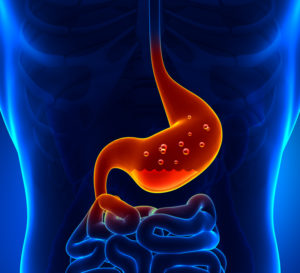Gastric Reflux (GERD) refers to the regurgitation of acid stomach contents into the esophagus. The most common clinical manifestation of GERD is heartburn and acid regurgitation.
manifestation of GERD is heartburn and acid regurgitation.
Symptoms of GERD includes heartburn, difficult or painful swallowing, sour taste in the mouth and frequent belching. Less typical features include chronic cough, hoarseness, sore throat and a sensation of fullness.
Obesity is thought to be a potential predisposing factor to gastro-esophageal reflux. Maintenance of ideal weight may help in reducing the symptoms.
Diet and nutrition are key factors for those who suffer from acid reflux or gastro esophageal reflux disease (GERD), a severe, chronic form of acid reflux. One can prevent or relieve your symptoms from gastro esophageal reflux (GER) or gastro esophageal reflux disease (GERD) by changing ones diet. One may need to avoid certain foods and drinks that make the symptoms worse. Other dietary changes that can help reduce symptoms include decreasing fatty foods, eating small, frequent meals instead of three large meals and avoiding very spicy food.

